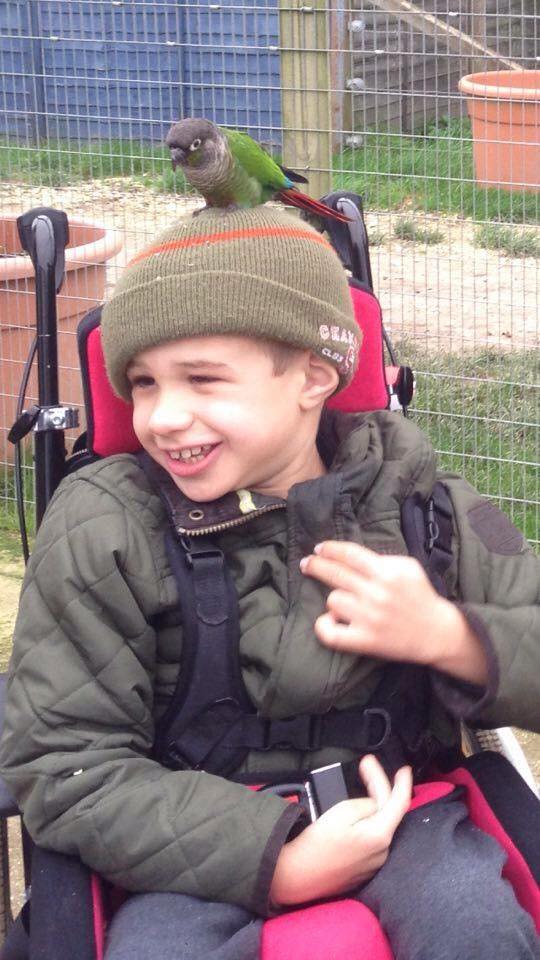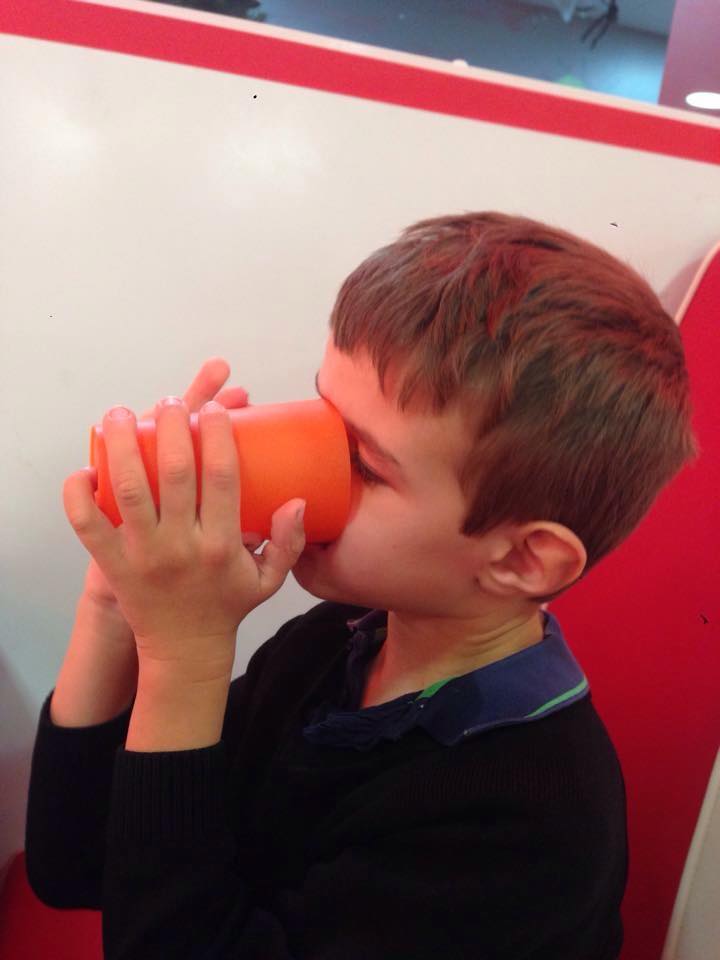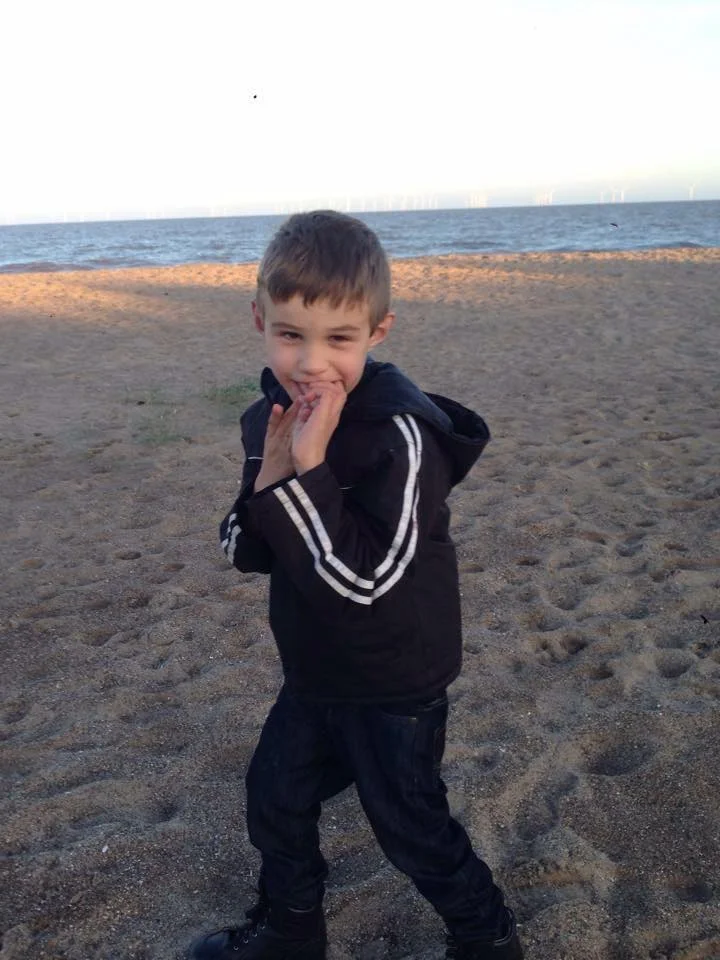Sebastien
Most babies do very little when they’re first born, apart from eat and sleep. So, when Dominique Pettitt realised that her infant son Sebastien literally couldn’t fall asleep, she knew something was seriously wrong.
“He’d just lie in his cot, wide awake. Most babies fall asleep instinctively, but Sebastien simply couldn’t,” explains Dominique. “My other son, Leon, was nine months at the time and his behaviour was completely different.”
It wasn’t the only issue troubling Dominique, 42, and her husband Steven, 48, about Sebastien. Their son didn’t hold eye contact or engage when they communicated with him. “It was like he was completely disconnected from the world,” she says. “Even when I was breastfeeding Sebastien, he seemed to have no awareness that I was there.”
At three months, Dominque and Steven decided to take Sebastien to see a paediatrician. After various tests, he was diagnosed with Phelan-McDermid Syndrome (PMS). This is a genetic syndrome caused by a faulty gene, called SHANK3, which is crucial for learning, memory and brain development. Symptoms of PMS include limited or absent speech, low muscle tone, poor control of muscles and eating and sleeping problems. The condition has similarities with autism, in that those with PMS have difficulties communicating and behavioural issues.
Learning to live
Sebastien is now four and his condition affects every part of his life. He can do virtually nothing for himself – and everything he can do, like sleeping, eating, and walking, has been taught to him.
“It’s hard to believe that I had to sit with him every night for a year, holding him, swaddling him, and literally teaching him that when darkness falls, you have to go to sleep,” explains Dominque. “Similarly with walking, his PMS means that he has ultra-sensitive hands and feet. It’s taken him time and extensive physiotherapy to manage the sensation he feels when he stands up – and not to freak out. Thankfully, he’s a determined little thing and has defied all logic to be able to do it.”
Sebastien’s PMS means that he doesn’t talk, sign or read. However, he has managed to create his own form of communication and can demonstrate to his parents how he’s feeling. “He’s very sweet and has beautiful eye contact,” says Dominique. “If he wants something he’ll come up to me or Steven, lean on us and look up. We’ll then ask him a range of questions like, ‘Are you hungry?’ ‘Do you want to go outside?’ ‘Do you want to walk?’ and when we say the one he wants to hear, he’ll smile widely or give us a huge kiss – indicating what he wants. He’s a very demonstrative and loving child.”
Sebastien enjoys listening to music as it motivates, stimulates and calms him. Every Saturday a carer takes him to a music group which he really enjoys. He also enjoys going out for walks with his family and watching the world go by around him.
“We always encourage Sebastien to walk where he can, then we put him back in his pushchair,” says Dominque. “He loves being outdoors. Like many boys, he loves cars and enjoys nothing more than sitting watching them drive past. He beams widely and you can see how happy he is.”
Finding support
Sebastien’s condition has had a major impact on his family’s life. He needs virtual round-the-clock care, and the family left their home and business in France last year to move back to England in order to get him the support he needs.
“It’s been a massive life-change for us,” says Dominique. “We didn’t want to leave France but the care for Sebastien just isn’t available there. Here in England, where Steven and I were born, he goes to an amazing school for children with severe learning difficulties and his progress since he joined last year has been remarkable.”
One example is that the school’s caretaker Jack has taught Sebastien to high-five. “On his first day at school, Jack held up his hand for Sebastien to clap. I had to explain that it would never happen and that Sebastien couldn’t use his hands. But, amazingly within a month, Sebastien had grasped it. Now, every day when he goes in he gives Jack a high five. It’s small things like that which really mean something special for us.”
Phelan-McDermid Syndrome Foundation UK
As well as Sebastien’s schooling and respite care, the Pettitts have also received support from the Phelan McDermid Syndrome Foundation. The charity provides helps families affected by PMS, and conducts vital research into the condition. “The work the PMS Foundation do is amazing,” says Dominque. “The charity was a real lifeline for us when we found out about Sebastien’s condition. The family days are fabulous because you meet people in the same position and you can just relax.”
Dominique is uncertain what the future will hold. Some children with PMS lose the skills they’ve acquired when they hit puberty. Others can go on to reach new developmental milestones.
“One certainty is that Sebastien will never be able to live independently and that’s obviously a concern as Steven and I get older,” says Dominique. “We try to live day to day, that’s all we can do. We plan for the worst case scenario but we live with the joy that at least for now Sebastien is a happy, loving child who is enjoying life.”



